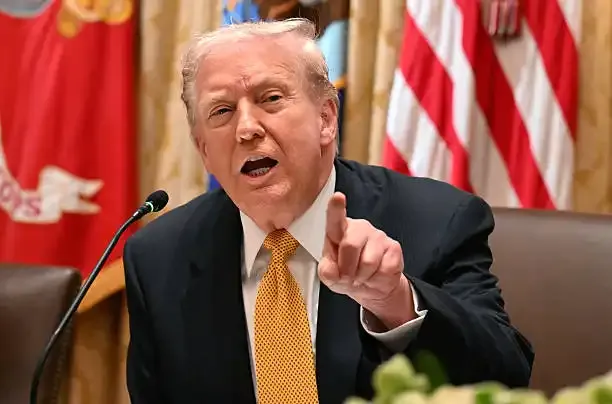Shopping cart
Your cart empty!
Terms of use dolor sit amet consectetur, adipisicing elit. Recusandae provident ullam aperiam quo ad non corrupti sit vel quam repellat ipsa quod sed, repellendus adipisci, ducimus ea modi odio assumenda.
Lorem ipsum dolor sit amet consectetur adipisicing elit. Sequi, cum esse possimus officiis amet ea voluptatibus libero! Dolorum assumenda esse, deserunt ipsum ad iusto! Praesentium error nobis tenetur at, quis nostrum facere excepturi architecto totam.
Lorem ipsum dolor sit amet consectetur adipisicing elit. Inventore, soluta alias eaque modi ipsum sint iusto fugiat vero velit rerum.
Sequi, cum esse possimus officiis amet ea voluptatibus libero! Dolorum assumenda esse, deserunt ipsum ad iusto! Praesentium error nobis tenetur at, quis nostrum facere excepturi architecto totam.
Lorem ipsum dolor sit amet consectetur adipisicing elit. Inventore, soluta alias eaque modi ipsum sint iusto fugiat vero velit rerum.
Dolor sit amet consectetur adipisicing elit. Sequi, cum esse possimus officiis amet ea voluptatibus libero! Dolorum assumenda esse, deserunt ipsum ad iusto! Praesentium error nobis tenetur at, quis nostrum facere excepturi architecto totam.
Lorem ipsum dolor sit amet consectetur adipisicing elit. Inventore, soluta alias eaque modi ipsum sint iusto fugiat vero velit rerum.
Sit amet consectetur adipisicing elit. Sequi, cum esse possimus officiis amet ea voluptatibus libero! Dolorum assumenda esse, deserunt ipsum ad iusto! Praesentium error nobis tenetur at, quis nostrum facere excepturi architecto totam.
Lorem ipsum dolor sit amet consectetur adipisicing elit. Inventore, soluta alias eaque modi ipsum sint iusto fugiat vero velit rerum.
Do you agree to our terms? Sign up

In a stunning development that has rocked one of the world’s most respected news organisations, BBC Director-General Tim Davie and BBC News CEO Deborah Turness have both resigned following revelations about selective editing in a documentary featuring former US President Donald Trump.
The resignations, announced late Sunday, mark one of the most significant leadership crises in the broadcaster’s history. The controversy erupted after a confidential internal report was leaked to the Daily Telegraph, alleging editorial bias and manipulation in a Panorama episode covering the January 6, 2021 Capitol riots.
According to the leaked findings, the Panorama team allegedly edited portions of Trump’s January 6 speech, removing contextual remarks that may have altered the tone of the report. The internal review accused BBC News of selective framing that “compromised editorial neutrality.”
The same report also highlighted growing internal dissent over the BBC’s coverage of the Israel-Hamas conflict and transgender rights debates, issues that have sharply divided British audiences and drawn scrutiny from lawmakers.
The fallout was swift. Within 48 hours of the leak, both Davie and Turness tendered their resignations.
In her official statement, Deborah Turness acknowledged operational missteps but firmly rejected claims of systemic bias.
“While mistakes have been made, I want to be absolutely clear — the recent allegations that BBC News is institutionally biased are wrong,” she said.
She added that her decision to resign was based on “accountability, not admission,” and that she hoped the move would help “restore internal confidence and protect the integrity of BBC journalism.”
Director-General Tim Davie, who took charge in 2020, also stepped down amid mounting political and public pressure. Davie was credited with steering the BBC through turbulent years marked by digital transformation and funding battles with the UK government.
However, the leaked report’s findings placed his leadership under severe scrutiny. Sources within the organisation said Davie had faced “untenable internal pressure” from senior editors and members of the BBC Board to take responsibility.
The resignations triggered immediate political reactions across the UK.
Members of Parliament from both sides of the aisle called for an independent investigation into editorial practices at the BBC.
Opposition lawmakers accused the government of using the scandal to politically pressure the broadcaster, while media reform advocates demanded stronger internal checks on journalistic integrity.
“The BBC must reaffirm its independence and rebuild trust,” said a statement from the UK Media Ethics Council.
This is not the first time the BBC has faced accusations of bias or editorial manipulation. The corporation has weathered multiple storms — from its handling of Brexit coverage to its reporting on gender identity and Middle East politics.
The latest incident, however, comes at a particularly fragile time. The BBC faces growing competition from digital media, internal budget cuts, and an increasingly polarised audience landscape.
Analysts say the scandal could accelerate calls for greater oversight and transparency within the broadcaster’s newsroom structure.
The BBC Board is expected to appoint an interim leadership team in the coming days, with internal names such as Jonathan Munro, Head of News Gathering, and Charlotte Moore, Chief Content Officer, being floated as potential successors.
Meanwhile, the UK government has indicated that it expects a “comprehensive inquiry” into the incident and broader editorial practices within the organisation.
For the BBC — a 100-year-old institution seen as the global standard for public broadcasting — the resignations represent more than a leadership shuffle. They signal a profound crisis of credibility and governance at a time when global trust in media is already at historic lows.
As the network scrambles to regain stability, one thing is clear: the Panorama controversy has shaken the very foundation of the BBC’s reputation for impartiality — a reputation that took decades to build and just one scandal to fracture.
17
Published: Nov 10, 2025